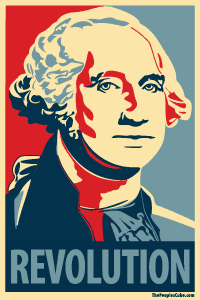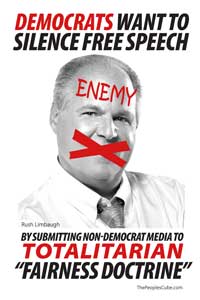By James Ceaser, Ph.D. | December 10, 2008 | Heritage Foundation
Contemporary American conservatism, which is notorious for its internal factionalism, is held together by a self-evident truth: conservatives’ shared antipathy to modern liberalism. Their main objections are well-known.
Almost to a man or woman, conservatives oppose using government authority to enforce a vision of greater equality labeled by its supporters, with great seduction, as “social justice.” Nearly as many conservatives object to the use of government authority–or, alternatively, to the denial of government authority where it is natural, legal, and appropriate–to promote a worldview of individualism, expressivism, and secularism. Finally, most conservatives want nothing to do with an airy internationalism, frequently suspicious of the American nation, that has shown itself so inconstant in its support for the instruments of security that are necessary in the modern world.
No shame attaches, or should, to relying in politics on the adhesive property that comes from the sentiment of common dislike. That sentiment is the heart that beats within the breast of the conservative movement, supplying much of its unity. This heart sustains four heads, known generally as religious conservatives, economic or libertarian-minded conservatives, natural-rights or neoconservatives, and traditionalists or paleoconservatives.
The four heads comprise a coalition of the willing that came together during the presidency of Ronald Reagan. The remarkable diversity of this coalition has been both a source of strength and a source of weakness for the conservative movement. Each part came into existence at a different time and under different circumstances, and each has been guided by a different principle by which it measures what is good or right.
-
For religious conservatives, that principle is biblical faith.
-
For libertarians, it is the idea of “spontaneous order,” the postulate that a tendency is operative in human affairs for things to work out for themselves, provided no artificial effort is made to impose an overall order.
-
For neoconservatives, it is a version of “natural right,” meaning a standard of good in political affairs that is discoverable by human reason.
-
Finally, for traditionalists, it is “History” or “Culture,” meaning the heritage that has come down to us and that is our own.
There are refinements and subdivisions that could be added to this schema, but it represents, I think, a fairly standard approach to discussing the different intellectual currents inside the conservative coalition. Recently, however, a number of commentators have fallen into the practice–I use this expression advisedly–of replacing this four-part schema by a two-part division based on a distinction between the concepts of “Culture” and “Creed.” The new system of categorization derives from a book published last year by Samuel Huntington, entitled Who Are We? in which the author offers these concepts as the two basic modes in any society for establishing national identity.[1] The categories are meant to refer to the whole nation, but conservatives have applied them to discussions of their own movement.
My argument in this essay will be that introducing this new categorization schema represents a huge error, especially as a way of discussing conservatism. The Culture-Creed distinction does not simplify; it distorts. Built into its categories are premises that attempt by fiat to order and arrange the different parts of the conservative coalition. Not only is this arrangement “partisan,” in the sense of favoring the Cultural category, but it also attempts, with no basis either in principle or in fact, to place faith inside of Culture, thereby suggesting a natural grouping of traditionalists and religious conservatives in opposition to natural-rights or neoconservatives. Whether this attempt was undertaken consciously or not is of little matter; what counts are its effects, and these could have serious and negative implications for the conservative movement.
The Concepts of Culture and Creed
Let me now take a step back and describe the concepts of Culture and Creed. Huntington initially provides a social science definition of Culture that is so broad as to be meaningless. Culture consists of “a people’s language, religious beliefs, social and political values, assumptions as to what is right and wrong, appropriate and inappropriate, and to the objective institutions and behavioral patterns that reflect these subjective elements.”
Huntington is less interested, however, in social science than in recovering a basis today for patriotism and for securing unity in America. It is our Culture that concerns him. He labels that culture “Anglo-Protestantism,” which refers to everything that Huntington elects to emphasize among the first New England settlers. His selection boils down to four main elements: our language (English); our religion (dissenting Protestantism); our basic political beliefs (a commitment to liberty, individualism, and self-government); and our race (white).
Since Huntington wants Culture to work as a source or standard of identity, and identity in a positive sense, he allows it to evolve in order to perform its function. In its evolved form, the Culture to which we should look refers–still–to the English language and to the same commitment to liberty and self-government; the notion of religion is broadened slightly from dissenting Protestantism to Christianity insofar as it has been Protestantized. Race as a criterion of distinction drops out.
As for Creed, Huntington initially defines it in a social science fashion as the taking of bearings from theoretical claims that are offered in principle as universal or applicable to all. Examples of Creed that he identifies are communism and classical liberalism. The use of these broad-based theoretical concepts is what Huntington means by Creedalism as distinguished from Culturalism. As he says at one point:
People are not likely to find in political principles [i.e., a Creed] the deep emotional content and meaning provided by kith and kin, blood and belonging, culture and nationality. These attachments may have little or no basis in fact, but they do satisfy a deep human longing for meaningful community.
Once again, however, Huntington’s interest in Who Are We? is more in our own Creed than in Creeds in general. Our Creed consists of an idea of nature, specifically of natural rights, as articulated in documents like the Declaration of Independence.
How does the binary distinction between Culture and Creed replace and subsume the four-part division of conservatism? The implication is the following. The category of Culture consists of traditionalists and religious conservatives–the first for the obvious reason of their emphasis on our history and culture and the second because Huntington identifies dissenting Protestantism as first or original. The category of Creed consists of natural-rights or neoconservatives and libertarians–the former because they regularly reference natural rights and the Declaration of Independence and the latter because they think in terms of general principles of economic reasoning.
An example will help to illustrate how this binary mapping of conservatism has entered into contemporary discussion. Lawrence Auster, an outspoken conservative, publishes an instructive blog entitled “View from the Right.” Never one to mince words, he begins a spirited entry of October 25, 2005, with an attack on President George W. Bush (one of his frequent targets) in an article ironically entitled “Under Bush and the American Creed, America Continues Its Bold Progress”:
At President Bush’s annual Ramadan dinner at the White House this week–did you know the President has an annual Ramadan dinner?–he announced for the first time in our nation’s history we have added a Koran to the White House Library. Yippee.[2]
Arguing that this recognition serves unwisely to legitimize Islam in America, Auster finds further evidence of this same error in a passage from a speech given the previous week by Senator John McCain at the Al Smith Dinner:
We have a nation of many races, many religious faiths, many points of origin, but our shared faith is the belief in liberty, and we believe this will prove stronger, more enduring and better than any nation ordered to exalt the few at the expense of the many or made from a common race or culture or to preserve traditions that have no greater attribute than longevity.[3]
In Auster’s view, the McCain-Bush position represents the perfect expression of creedal thinking:
According to McCain, the meaning of America is that we have no common culture and no coherent set of traditions but give equal freedom to all cultures, traditions and religions. Such a cultureless society is stronger and more enduring than any other.[4]
Auster may have taken some liberties with the strict claims of Bush and McCain, but his general point could not be more clear: The end result of the Creed is at best indifference, at worst hostility, to Culture.
The Problem with the Culture-Creed distinction
This application of the Culture-Creed distinction to the conservative movement contains two assumptions. The first is that Creedalists are not true conservatives, but conservatives on their way to becoming liberals, if they are not there already. The other is that religious conservatives–meaning those concerned with biblical faith–fall inside the category of Culturalists. Here would seem to be the main gambit involved in this analysis: to define those of faith as closer to cultural traditionalists than to proponents of natural rights.
In light of this questionable mapping of the conservative movement, it is fair to ask whether Creed and Culture make up helpful categories that assist in understanding reality, or whether they force the analyst to describe reality in a way that satisfies these categories.
Thomas Hobbes, that puckish British philosopher, has a chapter in Leviathan in which he reminds us that abstract categories are human constructions, born either of men’s efforts to comprehend the world or of the aim of some to dictate how others will think. The result very often is that these terms are imprecise, conflating different things under the same label and producing ever-growing confusions. Hobbes was a very timid man, and as is not infrequent with personalities of this kind, he was also a bit of a sadist. The trait served him well in describing how an individual, when employing a poorly circumscribed category, will soon find himself “entangled in words as a bird in lime twigs, the more he struggles, the more belimed.”
Have we become “belimed” by adopting the Culture-Creed distinction?
I bear some slight personal responsibility for popularizing this distinction. Last year I wrote a review essay on Huntington’s Who Are We? for The Weekly Standard.[5] In contrast to the avalanche of reviews from the Left attacking the book, mine was in many ways very appreciative. I followed the Golden Rule of discussing the work of a major thinker, which is to treat it initially on its own terms. Hence my lengthy discussion of the Culture-Creed distinction, on which I offered two observations.
First, I pointed out that more than 20 years ago, Huntington wrote a previous book on America–a fact he all but hides in this one–in which he invoked the Culture-Creed dyad.[6] In both books he argues that forging our national identity requires relying on both Culture and Creed. But whereas in the earlier book he contends that America should emphasize the Creed, in the current one he argues that it should identify more with the Culture.
Second, I asked what reason could account for so fundamental a change. A higher ordering idea of some kind, contained either within one of the two principles or coming from a new one, ought to have been supplied to account for how to regulate the appropriate mix of Culture and Creed. I offered a couple of speculative comments of my own on this issue and suggested that it would be a nice question for others to consider.
In the past year, this theme has been taken up by two well-known political scientists. In a recent issue of The Claremont Review of Books, the editor, Charles Kesler, has a fine essay on Huntington’s work. He begins with some cogent criticisms of how Huntington allows the concept of Creed to slide from its specific and original American meaning (a support of natural rights) to its more general social scientific meaning (any kind of broad type of theoretical reasoning). The result is a category that encompasses everything offered in the name of rational principles, from the position of limited government and individualism of the Founders to the Big Government position of the Progressives.
Following this clarification of the concept of Creed, Kesler goes on to argue that we need both concepts, but that the standard of regulation must stem from the Creed (properly understood). He concludes his essay:
The American creed is the keystone of American national identity; but it requires a culture to sustain it. The republican task is to recognize the creed’s primacy, the culture’s indispensability and the challenge which political wisdom alone can answer, to shape a people that can live up to its principles.[7]
Another very perceptive article appeared this fall in Society, written by Peter Skerry. Skerry takes Huntington to task for much of his treatment of the status of the Hispanic community in America and for his analysis of the process of immigrant integration into an American identity. On the major theoretical distinction of Culture and Creed, however, Skerry embraces Huntington’s analysis and shares his Cultural emphasis. America needs both Creed and Culture, but the senior partner today is–and should be–Culture, which Skerry observes is “at the core of Huntington’s understanding of American national identity.”[8]
Both of these essays, each critical in its own way of Huntington’s work, make use of the Culture- Creed distinction. In doing so, they, along now with many other writings, lend credibility to the view that these categories are adequate to define the terrain of this inquiry. It is this position that now needs to be challenged.
Before turning directly to this question, it is worthwhile to observe that for many “Culturalists,” there appears to be as much politics as social science in the Culture-Creed categorization scheme. No sooner is the distinction introduced than Culturalists put it to work to argue for their positions on two major issues of the day.
The first is the previously mentioned matter of immigration policy. Culturalists are deeply concerned with the current rate and character of immigration. Huntington devotes a large portion of his book to warning of the threat to national unity posed by the influx of Hispanics, largely Mexican. We are in danger of establishing two different cultures in the United States: one English-speaking and Anglo-Protestant, the other Spanish-speaking and, I suppose, Latin Catholic. Not only is it said that a Cultural approach makes us more aware of this problem, but also Creedalists are charged with being incapable of taking this problem seriously. Their reasoning in universal terms about all human beings makes them “a-Cultural” or anti-Cultural, which for practical purposes means, for immigration politics, multicultural. The Culture-Creed distinction is put to use as the proverbial stick with which to beat certain (alleged) foes of immigration restriction.
The other issue on which Culturalists insist today is foreign policy, where many of them are highly critical of the Bush Administration’s position on the war on terrorism. The Administration’s policy in launching the Iraq war and in emphasizing democracy is again said to be a consequence of Creedal thinking, which in its universalistic perspective leads to a naïve belief, often labeled “Wilsonianism,” in the possibility of exporting Western democracy to the rest of the world. Creedalism blinds one to the factual primacy of Culture. If the Creedalists who have designed the current foreign policy appreciated the strength and soundness of Culture at home, acknowledging that every other nation or civilization has its Culture just as we have ours, the folly of their grandiose project of nation building would quickly become evident to them.
Culturalists here, incidentally, have their closest allies among those on the Left, including the multiculturalists, who on this issue adopt the Culturalist and realist position. Again, the Culture-Creed distinction becomes the weapon of choice in attacking a policy even though a good number of natural-rights conservatives have expressed reservations about this policy of their own.
A Better Foundation
Huntington’s inquiry is concerned with cohesiveness and justification–with what enables Americans to be a people, in the sense of possessing unity, and with what makes this people good or worthy in its own eyes. Creed and Culture are said to provide the categories that cover this terrain and allow for intelligent investigation of these questions. But these categories, I have argued, are neither adequate nor exhaustive. Even as defined, they are hugely asymmetrical. Creed refers to a doctrine or set of principles; Culture is presented as a compilation of existing sociological facts and realities. But as should be obvious by now, Culture is used to do far more than reference pure facts. It is itself a doctrine that selects facts and bids us to judge the world in a certain way.
It seems to me that a more rewarding approach to the study of unity would begin by separating the study of pure sociological facts–the analysis of what is (or has been) our language, our customs, beliefs, and the like–from all doctrines meant to supply an idea of unity and of right. It would then be possible to examine these doctrines without built-in presuppositions to see how they conceive of cohesiveness and deal with certain sociological facts.
Given my time limits here, I will restrict myself to three major doctrines that were put forth in the early period of our history and that remain important for contemporary politics and the modern conservative movement: natural rights, traditionalism, and faith.
Read the full article here.
Related Articles
- A Positive Vision for American Conservatism (constitutionclub.org)
- Con-fusion (spectator.org)
- The Point of a Republic: (brothersjuddblog.com)
- American social conservatism here to stay (mysanantonio.com)
- Conservatism losing its way, as usual (orthosphere.org)
- From Mitt Romney to Ron Paul: The vast wasteland of American conservatism (thehill.com)
- A hopeful, youthful, idealistic and optimistic conservatism (dailycaller.com)
- Calvin Coolidge: “The Inspiration of the Declaration” (johnmalcolm.me)
- Ron Paul Campaign (which still exists) frustrated by conservatives who fail to recognize Santorum rejects Goldwater (theblaze.com)
- Marco Rubio’s liberal foreign policy (dailycaller.com)









